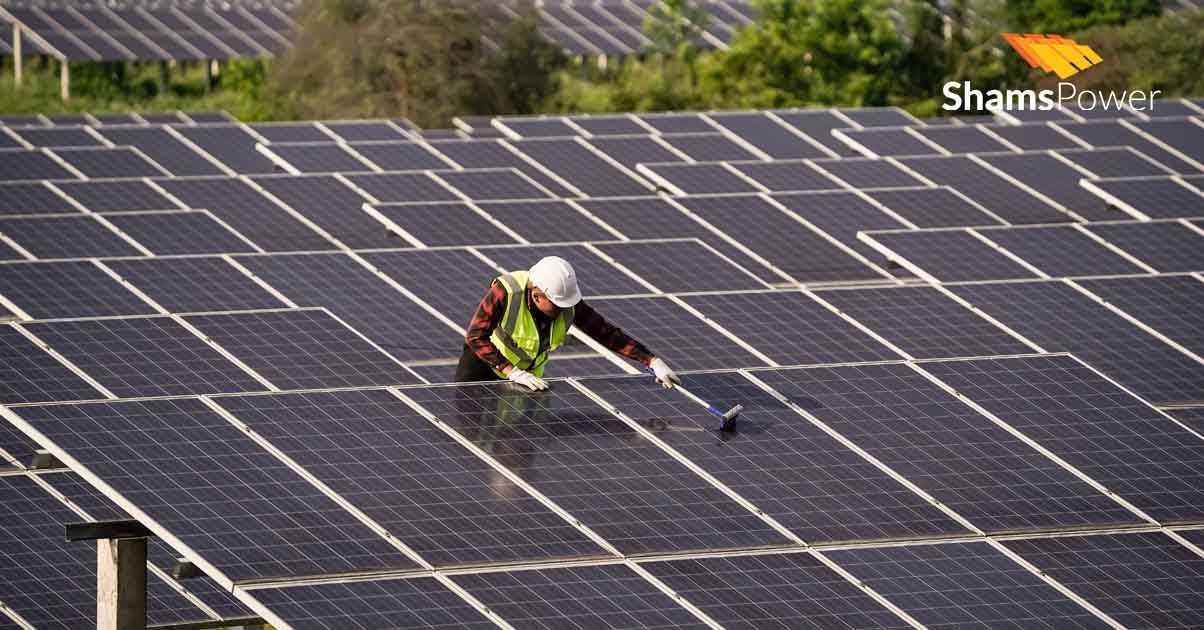Shams Power: Cost-Benefit Analysis: Is Solar Power Economically Viable for Pakistani Industries?
The global shift towards renewable energy sources has gained momentum over the past few decades, driven by concerns about climate change, energy security, and the long-term sustainability of traditional fossil fuels. Solar power has emerged as a promising contender among these renewable options due to its abundant availability and decreasing technology costs. Pakistan, a country facing energy challenges and a growing industrial sector, stands at a crossroads when it comes to adopting solar power for its industries. This blog post will delve into a comprehensive cost-benefit analysis to determine whether solar energy is economically viable for Pakistani industries.
The Energy Landscape of Pakistan
Pakistan's energy sector has long grappled with a mismatch between supply and demand, resulting in frequent power outages and a heavy reliance on imported fossil fuels. This dependence on non-renewable sources strains the national economy and contributes to environmental degradation. Solar power offers hope in addressing these issues while fostering economic growth.
Benefits of Solar Power for Pakistani Industries
Reduced Energy Costs
One of the primary advantages of solar power is its potential to significantly lower energy costs for industries. Once the initial setup costs are recovered, solar energy can provide a consistent and accessible source of electricity, shielding businesses from the volatility of fossil fuel prices.
Energy Independence
By harnessing solar energy, Pakistani industries can reduce their reliance on imported fossil fuels. This strengthens energy security and decreases the country's trade deficit, contributing positively to the economy.
Environmental Impact
Solar power is a clean, renewable energy source with minimal greenhouse gas emissions. Adopting solar energy could help Pakistani industries reduce their carbon footprint, contributing to global efforts to combat climate change.
Job Creation
Establishing solar power infrastructure requires skilled installation, maintenance, and operation labor. This presents an opportunity for job creation, which is crucial for Pakistan's burgeoning workforce.
Challenges and Considerations
Initial Investment
The upfront cost of installing solar panels and related equipment can be a significant barrier for industries. However, it's essential to consider this as a long-term investment with the potential for substantial returns.
Intermittency
Solar power generation depends on sunlight, which can be inconsistent due to weather conditions and the day-night cycle. To ensure an uninterrupted power supply, industries might need to invest in energy storage solutions, which can add to the overall costs.
Technical Expertise
The successful implementation of solar power systems requires technical expertise for design, installation, and maintenance. This could pose a challenge if the local workforce needs to be improved essay skills.
Regulatory Environment
Clear and supportive policies from the government are crucial for encouraging solar power adoption. Industries need favorable feed-in tariffs, net metering, and other incentives to make the transition economically viable.
Return on Investment (ROI)
While the initial investment in solar power systems might be high, evaluating the potential ROI over the system's lifespan is crucial. Calculating the payback period – the time it takes for the energy savings to cover the initial investment – can provide insight into the long-term financial benefits.
Energy Security
Solar power can enhance energy security by diversifying the energy mix. Industries relying solely on conventional energy sources are vulnerable to supply disruptions, negatively impacting operations and profitability.
Long-Term Stability
The availability of solar power is inexhaustible compared to finite fossil fuels. This long-term stability can provide a reliable energy source for industries for decades.
Cost-Benefit Analysis
To determine the economic viability of solar power for Pakistani industries, let's conduct a comprehensive cost-benefit analysis.
Costs
Initial Investment: The capital cost of installing solar panels, inverters, and other equipment can be high. However, technological advancements and decreasing costs have made solar installations more affordable in recent years.
Maintenance and Operation: While solar systems have minimal ongoing maintenance costs, there are still expenses associated with monitoring, cleaning, and occasional repairs.
Energy Storage: To overcome the intermittency of solar power, energy storage solutions like batteries might be required, adding to the overall investment.
Benefits
Energy Savings: Solar power systems generate free electricity once installed, significantly reducing operational energy costs.
Reduced Dependency: Industries can hedge against rising fossil fuel prices and reduce their vulnerability to supply chain disruptions.
Environmental Benefits: Adopting solar power aligns with sustainability goals, potentially leading to positive public relations and marketing outcomes.
Job Creation: Establishing and maintaining solar systems can create local job opportunities in the renewable energy sector.
Wrap up
After conducting a thorough cost-benefit analysis, it becomes evident that solar power holds substantial promise for Pakistani industries. Despite the initial investment and intermittent nature of solar energy, the long-term benefits, including reduced energy costs, energy independence, environmental preservation, and job creation, make it an economically viable option.
However, successfully integrating solar power into Pakistan's industrial landscape requires collaboration between the government, the private sector, and technical experts. Favorable policies, financial incentives, and investment in building technical capacity are essential to ensure the effective adoption of solar energy.
In conclusion, while challenges exist, solar power's economic and environmental benefits make it a compelling choice for Pakistani industries seeking sustainable growth and energy security. Embracing solar power today could lead to a brighter and cleaner future for Pakistan tomorrow.




.jpg)

Comments
Post a Comment